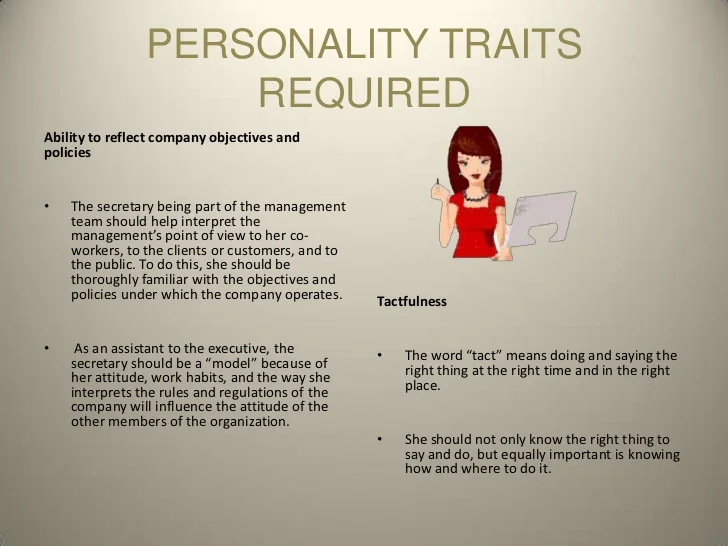
The Modern Secretary: Navigating the Office Maze with Grace
Let’s face it, the job’s changed. Being a secretary now? It’s not just about typing letters and answering calls. It’s more like being the control center of a spaceship, keeping everything running smoothly. You’ve got to juggle schedules, understand tech, and keep secrets like a seasoned spy. Imagine being the person everyone relies on, the one who knows where everything is and how to fix anything. It’s a bit like being a superhero, but with a keyboard and a knack for organization. And sometimes, that keyboard is your most powerful weapon.
You’re dealing with digital tools constantly. From managing online calendars to handling complex communication systems, you’ve got to be tech-savvy. This means keeping up with the latest software, understanding cloud storage, and even fixing minor computer problems. It’s not just sending an email; it’s about making sure everything flows seamlessly. Picture yourself as the digital wizard of the office, making life easier for everyone.
Plus, trust and discretion are huge. You’re handling sensitive information, so people need to know they can rely on you. Keeping things confidential isn’t just a rule; it’s about being someone others can count on. You’re the vault, protecting important company details.
And you’ve got to roll with the punches. Things change quickly, and you need to be able to prioritize and adapt. Whether it’s moving a meeting last minute or dealing with a sudden flood of emails, you’ve got to stay calm and organized. Flexibility and a positive attitude are your best allies. Every day brings something new, and you need to be ready for anything.
Organization: The Secret to a Smooth Office Day
Being organized is the key to success. This means planning carefully, managing your time well, and knowing what’s important. You need to have good filing systems, both on paper and on the computer. Think of it as being the librarian of the office; every document has its place, and you’re the one who makes sure it’s there.
Time management is also vital. You’ve got to handle many tasks and deadlines without missing anything. This means setting realistic goals, breaking big projects into smaller parts, and avoiding distractions. Imagine yourself as a conductor, keeping all the different parts of the office working together. No missed beats, no wrong notes.
Planning ahead is crucial. You need to anticipate problems and prepare for them. This means thinking ahead, seeing potential issues, and having solutions ready. It’s like playing chess, always thinking several steps ahead. You’re not just reacting, you’re planning.
Keeping a detailed calendar is essential. This means scheduling meetings, appointments, and deadlines, and keeping everyone informed. It’s about making sure everyone is on the same page, so no one misses a thing. Calendars are your best friend, and you become the best friend of your calendar.
Communication: Building Connections and Keeping Peace
You need excellent communication skills. This includes writing and speaking clearly, and listening carefully. Being able to explain things simply is important. Whether you’re writing emails, reports, or talking to clients, clarity is key. It’s about making sure everyone understands the message. Clear talks prevent many problems.
Listening carefully means paying attention to what people say, asking questions, and responding appropriately. This means understanding the real message, not just the words. It’s about being present and involved in every conversation. You are like a detective, listening for clues, to make sure you have all the facts.
Being polite and professional is important, especially when dealing with difficult people. This means staying calm, handling complaints well, and keeping a positive attitude. It’s like being a diplomat, keeping peace in the office. A smile and a calm voice can help a lot.
Good communication also means understanding body language. This means paying attention to how people look and sound. It’s about understanding what isn’t said. Body language can say a lot.
Tech Skills: Working in a Digital World
These days, a secretary needs to know a lot about computers and software. You need to be good at word processing, spreadsheets, and presentations. This means creating professional documents, analyzing data, and giving good presentations. It’s like having a digital toolbox, and knowing how to use every tool.
You also need to know how to use different communication tools, like email, messaging, and video calls. This means managing email well, running online meetings, and working with others online. It’s about being a digital communicator, making sure messages get through. No more lost emails, and no more missed online meetings.
Knowing how to use cloud storage and file sharing is also important. This lets you work with others easily and access documents from anywhere. It’s like having a digital file cabinet in the sky, available to everyone who needs it. No more searching for lost files.
Fixing basic computer problems is also helpful. This means finding and fixing common tech issues, like printer problems or software glitches. It’s like being a digital problem solver, fixing issues before they get big. A little tech knowledge can save a lot of time.
Problem-Solving: Staying Ahead of Trouble
A good secretary doesn’t just react to problems; they see them coming and find solutions before they happen. This means spotting potential issues, fixing small problems before they get big, and taking steps to prevent problems. It’s about being a forward thinker, always looking ahead. You’re the office’s first line of defense.
Good problem-solving means looking at situations, finding the root causes, and coming up with creative solutions. This means thinking carefully, brainstorming ideas, and thinking about the outcomes. It’s like being a detective, putting together clues to solve a puzzle. Every problem is a puzzle waiting to be solved.
Staying calm under pressure is essential. This helps you think clearly and make good decisions, even when things are stressful. It’s like being a rock, staying steady in the chaos. A calm head wins.
Writing down processes and procedures is also important. This makes things consistent and helps others learn, making it easier to follow the rules. It’s about creating a roadmap, making sure everyone knows where to go and how to get there. Clear documentation saves time and reduces errors.
FAQ: Questions and Answers for Future Secretaries
Q: What are the most important abilities for a secretary?
A: The most important abilities include being very organized, communicating well, knowing relevant software, and keeping things confidential. You also need to be able to predict needs before they appear.
Q: How can I get better at managing my time?
A: Prioritize tasks, set realistic deadlines, use calendar tools, and avoid distractions. Remember, every minute is valuable, so use them wisely.
Q: How do I handle difficult people?
A: Stay professional, listen carefully, stay calm, and try to find solutions that work for everyone. Sometimes a deep breath and a patient ear are all you need.
Q: What software should a secretary know?
A: You should know Microsoft Office Suite (Word, Excel, PowerPoint, Outlook), calendar software, and cloud-based tools. Knowing video conferencing platforms is also very helpful.

How To Be A Good Secretary

Secretary

How To Be A Good Secretary

95 Tempting Secretary Quotes (general Secretary, Good School

Good Secretary Stock Image. Image Of Isolated, Manager 7514365
